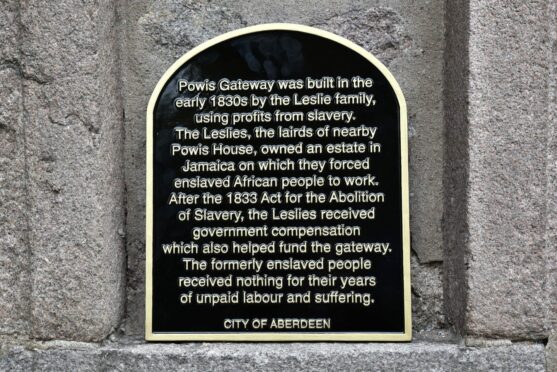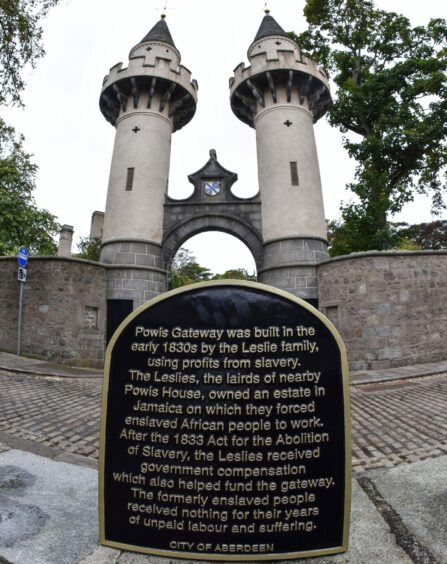A plaque recognising the legacy of slavery in the north-east has been erected outside Powis Gateway in Old Aberdeen.
The historic gateway, built by the Leslie family, was funded using compensation following the abolition of slavery in Britain’s Caribbean colonies in 1834.
Now owned by Aberdeen University, the structure is a symbol of the profiteering from slavery between the Caribbean and north-east Scotland.
The gateway was built using the £7,000 – £600,000 in today’s money – that the Leslie family received from the British government due to the loss of their slaves.
Slaves who worked for the Leslie family did not receive any money for the years of suffering and unpaid labour they were forced to endure.
The Powis Gateway represents historic inequality, further highlighted during the 2020 Black Lives Matter protests.
The new plaque makes clear the history behind the site and is part of Aberdeen City Council’s commemorative plaques scheme.
‘A puzzle piece to understanding our university.’
It is also part of a wider program to recognise and address the links between Aberdeen University and north-east Scotland and slavery.
In 2020, Richard Anderson was appointed lecturer in the history of slavery and is currently conducting a two-year research project into the legacy of slavery in the region.
Mr Anderson said: “Powis Gateway is the most tangible link between the University of Aberdeen and slavery-derived wealth.
“It is important that this history is reflected more clearly so that all those who pass through the gates can better understand their legacy and the erection of this plaque is one step in this work.
“We recognise that much more is still required both in contextualising the history of the Powis Gateway, understanding and addressing the benefits which still exist today which were built on wealth from slavery and in decolonising our curriculum.”
Aberdeen University student president Vanessa Mabonso Nzolo said: “We consider this plaque as a puzzle piece to understanding our university; as a piece of valuable evidence to help us trace and navigate the academic practices, culture, and knowledge that are embedded in the history of empire.”
An exhibition exploring the legacy of slavery in the north-east will open in spring next year in the Sir Duncan Rice Library.


Conversation